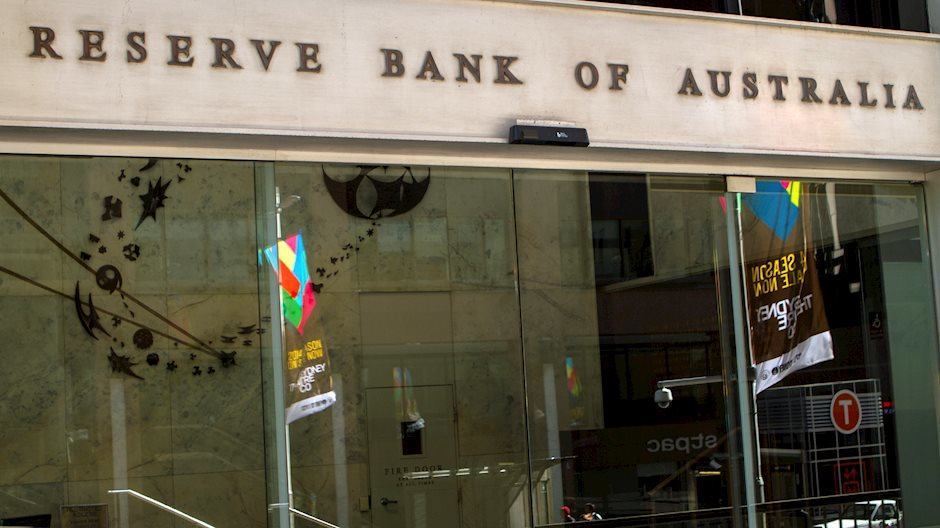RBA’s Bullock: Board judges level of cash rate appropriate

Reserve Bank of Australia (RBA) Governor Michele Bullock is speaking at a press conference following the central bank's August monetary policy decision announced on Tuesday.
Bullock is responding to questions from the media, as part of a new reporting format for the central bank starting this year.
At its August policy meeting, the RBA maintained the key interest rate at 4.35% for the sixth consecutive meeting.
Key quotes
Board judges level of cash rate appropriate.
Still risk inflation takes too long to return to target.
Progress on inflation has been slow for a year now.
Need to stay on course with inflation.
Board discussed market volatility, will be keeping an eye on this.
Interest rates might need to stay high for longer.
Also risks on the downside, high degree of uncertainty.
Near-term cut in rates does not align with board's thinking.
Board did consider rate rise.
A rate cut is not on the agenda in the near term.
Ready to raise rates if needed.
Need to have caution and calm on market volatility.
Market is pricing in rate cuts too soon.
Market pricing of cuts for next six months does not align with the board.
Telling markets they a bit ahead of themselves.
Do not see a recession ahead.
Market volatility seen as an overreaction.
Expected drop in CPI inflation might impact on inflation expectations.
But people understand that we are focussed on core inflation.
Lagged effects of interest rate changes are still around 18 months.
Market reaction
AUD/USD is extending gains, underpinned by the above comments, up 0.45% on the day at 0.6524, as of writing.
RBA FAQs
The Reserve Bank of Australia (RBA) sets interest rates and manages monetary policy for Australia. Decisions are made by a board of governors at 11 meetings a year and ad hoc emergency meetings as required. The RBA’s primary mandate is to maintain price stability, which means an inflation rate of 2-3%, but also “..to contribute to the stability of the currency, full employment, and the economic prosperity and welfare of the Australian people.” Its main tool for achieving this is by raising or lowering interest rates. Relatively high interest rates will strengthen the Australian Dollar (AUD) and vice versa. Other RBA tools include quantitative easing and tightening.
While inflation had always traditionally been thought of as a negative factor for currencies since it lowers the value of money in general, the opposite has actually been the case in modern times with the relaxation of cross-border capital controls. Moderately higher inflation now tends to lead central banks to put up their interest rates, which in turn has the effect of attracting more capital inflows from global investors seeking a lucrative place to keep their money. This increases demand for the local currency, which in the case of Australia is the Aussie Dollar.
Macroeconomic data gauges the health of an economy and can have an impact on the value of its currency. Investors prefer to invest their capital in economies that are safe and growing rather than precarious and shrinking. Greater capital inflows increase the aggregate demand and value of the domestic currency. Classic indicators, such as GDP, Manufacturing and Services PMIs, employment, and consumer sentiment surveys can influence AUD. A strong economy may encourage the Reserve Bank of Australia to put up interest rates, also supporting AUD.
Quantitative Easing (QE) is a tool used in extreme situations when lowering interest rates is not enough to restore the flow of credit in the economy. QE is the process by which the Reserve Bank of Australia (RBA) prints Australian Dollars (AUD) for the purpose of buying assets – usually government or corporate bonds – from financial institutions, thereby providing them with much-needed liquidity. QE usually results in a weaker AUD.
Quantitative tightening (QT) is the reverse of QE. It is undertaken after QE when an economic recovery is underway and inflation starts rising. Whilst in QE the Reserve Bank of Australia (RBA) purchases government and corporate bonds from financial institutions to provide them with liquidity, in QT the RBA stops buying more assets, and stops reinvesting the principal maturing on the bonds it already holds. It would be positive (or bullish) for the Australian Dollar.
Author

Dhwani Mehta
FXStreet
Residing in Mumbai (India), Dhwani is a Senior Analyst and Manager of the Asian session at FXStreet. She has over 10 years of experience in analyzing and covering the global financial markets, with specialization in Forex and commodities markets.

















